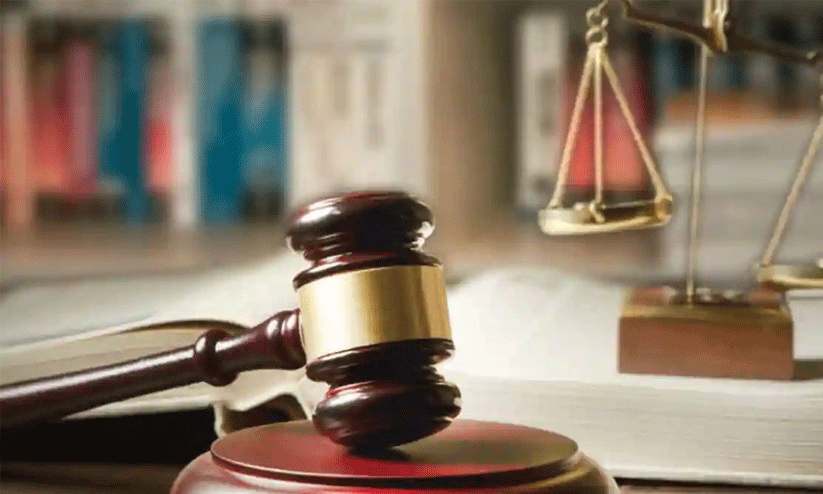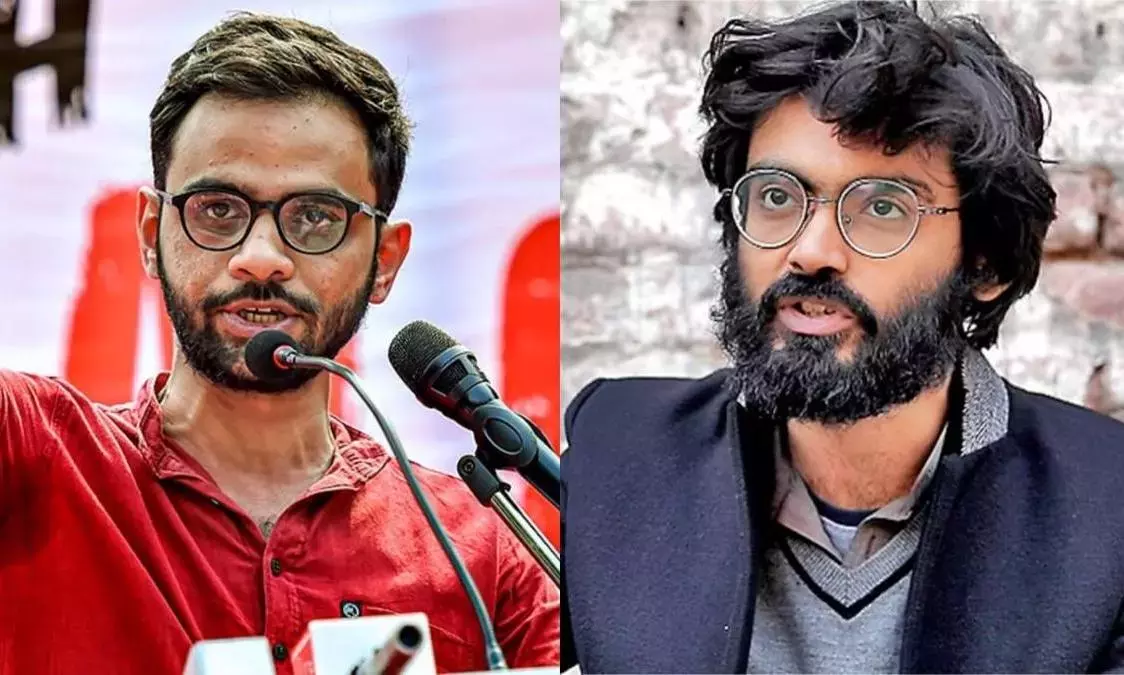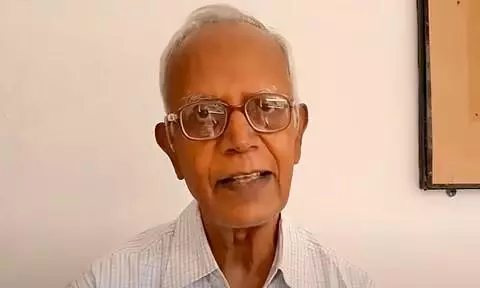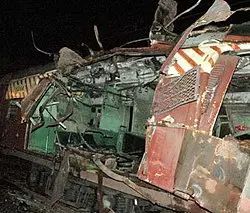
No trial, no bail; no justice
text_fieldsThe name Gurmeet Ram Rahim Singh is familiar to all readers. Posing as a god-man, he had won thousands of followers and amassed assets worth crores of rupees, and a special CBI court found him guilty of raping two devotees in 2017. The violence committed by his followers in protest against the court verdict turned into riots and caused huge casualties. The court sentenced him to 20 years in prison for the rape charge. He was sentenced to life imprisonment in 2019 for the murder of journalist Ram Chander Chhatrapati in 2002, who had published a report on the atrocities faced by women in Ram Rahim's ashram. Despite being sentenced to life imprisonment, Ram Rahim Singh has been out on parole at least 12 times between 2020 and April 2025. The first two were to visit his ailing mother and another to visit his family, while the latter paroles were to attend celebrations at the headquarters, which is shrouded in mystery and has been involved in crimes. He spends at least 90 days a year in the outside world. BJP leaders, including state ministers, also attend events held in his presence. During election seasons, he also canvasses for votes for the BJP among his followers.
The privileges enjoyed by criminals like Gurpreet Ram Rahim Singh in this country come to mind while reading the Delhi High Court verdict rejecting the bail pleas of nine activists, including Sharjeel Imam and Umar Khalid, who are in jail for their alleged involvement in the 2020 Delhi riots conspiracy case. Sharjeel Imam has already spent 2,046 days in jail, Khalid Saifi 2,017 days, Meeran Haider 1,982 days, Gulfisha Fatima 1,974 days, Shifa-ur-Rehman 1,957 days and Umar Khalid 1,817 days in jail. It should be remembered that this long-term ‘custody’ is before the trial of the alleged crimes has even begun. It is well known that the government is trying to teach them a lesson in this way because they have stood fearlessly against the government's efforts to discriminate against the people of the country on the basis of religion. Dr Hani Babu, a Keralite professor at Delhi University, has been facing this kind of ‘punishment’ for more than five years. Hani Babu’s crime is that he campaigned against caste-based injustices and social inequalities. He has been arrested and sent to a Maharashtra jail in the Bhima-Koregaon-Elgar Parishad case, which has implicated leading rights activists in the country, from Stan Swami to Sudha Bharadwaj. The government virtually eliminated Stan Swamy, who advocated for the rights of tribals whose rights were being taken away, by denying him treatment and even the right to drink water. The government, which is cracking down, arresting and imprisoning citizenship activists and tribal and Dalit rights activists on serious charges, has pressured the Supreme Court collegium to transfer Justice Muralidhar from the Delhi High Court for criticising the Delhi Police's failure to file a case against BJP leaders who made hate speeches that led to the Delhi riots. What is to be gleaned from all this is that the government is trying to send a message that taking a stand for justice, equality, and fairness will result in imprisonment without trial and transfer.
The government is prolonging the trial without even starting it, as there is no evidence to establish the fabricated charges against the accused. This is to give them time to fabricate false witnesses and fake evidence. It has been revealed that evidence was planted in the computers of many accused in the Bhima-Koregaon-Elgar Parishad case using spyware. The judiciary of the country knows better than anyone that the government and the law enforcement agencies working around it will resort to such tricks. Yet it is unfortunate that the courts often make observations that even the unjust and extraordinary delays in the trial are normal. The Supreme Court of India has granted bail to Vernon Gonsalves and Arun Ferreira, accused in the Bhima-Koregaon-Elgar Parishad case, saying that prolonged imprisonment cannot be justified on the grounds that the charges against them are serious crimes. We have recently seen what happens when courts delay trials and deny bail for the sake of state interests. Kamal Ansari, a young man who was framed in the Mumbai train blast case by fabricating false evidence, died of illness after spending more than a decade in prison. It took years for the court to pronounce his innocence. Finally, the only thing his family and friends could do was to take the verdict to his grave and have it read out. In the current situation in India, we can only hope that no innocent person will ever face such a ‘judgment’.









